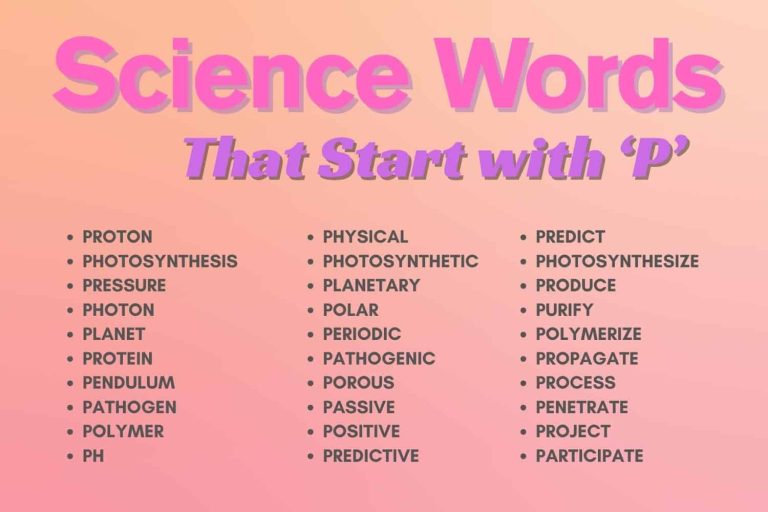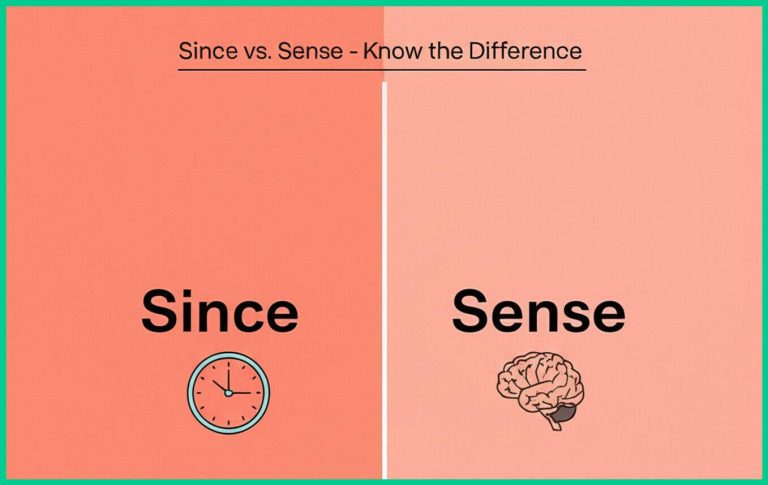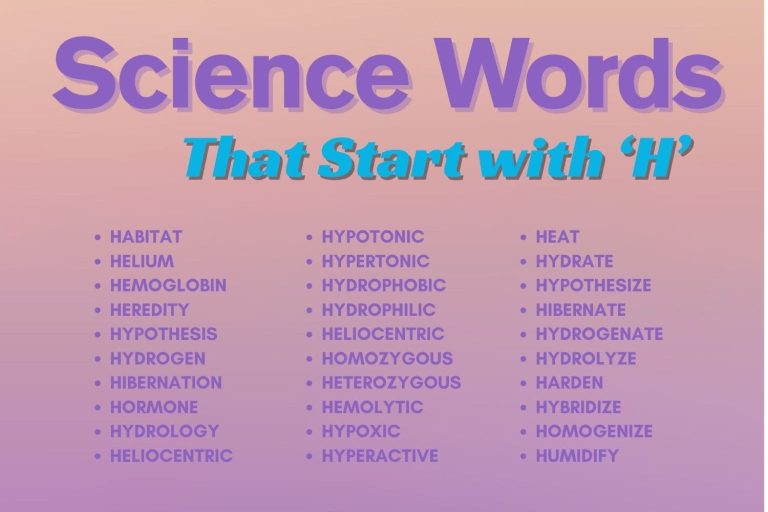60+ Science Words Starting with “E” (With Meanings & Examples)
The letter “E” introduces a wide variety of essential terms found across multiple scientific fields. From energy, which powers every physical process, to evolution, the foundation of biological theory, these words are critical to understanding how the universe and life itself operate. Concepts like ecosystem, electron, enzyme, and earthquake highlight just how diverse and impactful “E” words can be in explaining natural phenomena.
In biology, they help us explore the interactions between organisms and their environment. In physics, they uncover the forces and particles that shape reality. In earth science, they guide our understanding of natural events and planetary processes. These terms aren’t just academic—they appear in everyday discussions, research, and technological advancements, making them useful for students, teachers, and science enthusiasts alike.
We present a thoughtfully selected collection of scientific vocabulary that begins with the letter E, complete with definitions and examples. Whether you’re expanding your knowledge, preparing for a quiz, or looking for inspiration for a science project, this guide will provide a deeper understanding of important scientific concepts—all connected by one powerful letter in the alphabet.
Get ready to embark on an exciting journey through the world of science, one “E” word at a time!
Definition of Science Words Starting with “E”
Science words beginning with “E” encompass a wide range of terms across various scientific disciplines. These words can refer to fundamental concepts, specific phenomena, tools, processes, and much more.
Understanding these terms requires appreciating not only their dictionary definitions but also their contextual significance within the scientific field in which they are used. Many of these words have precise meanings that differ from their everyday usage, making it crucial to learn their specific scientific connotations.
Furthermore, these words often form the building blocks of more complex scientific explanations and theories. For instance, understanding the concept of “energy” is essential to grasping principles in physics, chemistry, and biology.
Similarly, understanding “evolution” is fundamental to comprehending modern biology. Therefore, a solid grasp of these foundational “E” words is vital for anyone seeking to delve deeper into scientific knowledge.
The following table illustrates how prefixes, suffixes, and roots contribute to the meaning of science words starting with “E”:
| Prefix/Suffix/Root | Meaning | Example Word | Explanation |
|---|---|---|---|
| Eco- | Environment, habitat | Ecology | Study of the interactions between organisms and their environment. |
| Endo- | Within, inner | Endocrine | Relating to glands that secrete hormones internally. |
| -emia | Condition of blood | Erythremia | An abnormal increase in red blood cells. |
| Epi- | Upon, over | Epidermis | The outer layer of skin. |
| Exo- | Outside, external | Exoskeleton | An external skeleton. |
| -enzyme | Biological catalyst | Enzyme | A protein that speeds up chemical reactions. |
| Electro- | Electricity | Electrolysis | The process of using electricity to decompose a compound. |
| Evo- | Out, forth | Evolution | The gradual development of organisms over time. |
| Equi- | Equal | Equilibrium | A state of balance. |
| Erythro- | Red | Erythrocyte | A red blood cell. |
Understanding these structural elements can significantly enhance your ability to learn and remember new science words.
Examples of Science Words Starting with “E”
Here are extensive examples of science words starting with “E,” organized by category. These examples illustrate the diverse range of scientific concepts and terminologies that begin with this letter.
Table 1: Examples of “E” Words in Chemistry
| Word | Definition | Example Sentence |
|---|---|---|
| Einsteinium (Es) | A synthetic radioactive element. | Einsteinium is produced in nuclear reactors. |
| Element | A substance that cannot be broken down into simpler substances by chemical means. | Oxygen is an element essential for respiration. |
| Electrolyte | A substance that produces an electrically conducting solution when dissolved in a polar solvent, such as water. | The sports drink contained electrolytes to replenish those lost during exercise. |
| Ester | A chemical compound derived from an acid (organic or inorganic) in which at least one –OH (hydroxyl) group is replaced by an –O–alkyl (alkoxy) group. | Esters are commonly used as fragrances and flavorings. |
| Ethane | A colorless, odorless gaseous alkane hydrocarbon. | Ethane is a component of natural gas. |
| Ethanol | A colorless volatile flammable liquid produced by the natural fermentation of sugars. | Ethanol is used as a solvent and fuel. |
| Ethyl | The alkyl substituent derived from ethane. | Ethyl alcohol is another name for ethanol. |
| Equation | A symbolic representation of a chemical reaction using symbols and formulas. | The chemical equation must be balanced to conserve mass. |
| Effervescence | The escape of gas from an aqueous solution. | The antacid tablet caused effervescence when dropped into water. |
| Endothermic | A process that absorbs heat from its surroundings. | Melting ice is an endothermic process. |
| Exothermic | A process that releases heat to its surroundings. | Combustion is an exothermic process. |
| Electronegativity | A measure of the tendency of an atom to attract a bonding pair of electrons. | Oxygen has a high electronegativity. |
| Empirical Formula | The simplest whole-number ratio of atoms in a compound. | The empirical formula of glucose is CH2O. |
| Enantiomer | One of a pair of molecules that are mirror images of each other but are not superimposable. | Many drugs exist as enantiomers with different biological activities. |
| Equilibrium | A state in which the rate of forward and reverse reactions are equal. | The reaction reached equilibrium after several minutes. |
| Evaporation | The process of a liquid changing into a gas. | Evaporation of water cools the skin. |
| Elution | The process of extracting one material from another by washing with a solvent. | Elution is used in chromatography to separate compounds. |
| Effusion | The process in which gas escapes through a tiny hole into a vacuum. | Graham’s law describes the rate of effusion of gases. |
| Excited State | A state in which an atom has more energy than its ground state. | An electron in an excited state can release energy as light. |
| Excipient | An inactive substance that serves as the vehicle or medium for a drug. | Lactose is a common excipient in tablets. |
| Exfoliation | The process of a material breaking off in scales or layers. | Some rocks undergo exfoliation due to weathering. |
| Extraction | The process of separating a substance from a mixture. | Extraction with a solvent can isolate the desired compound. |
| Electrolysis | The process of using electricity to decompose a chemical compound. | Electrolysis of water produces hydrogen and oxygen. |
| Esterification | The process of forming an ester from an alcohol and a carboxylic acid. | Esterification requires a catalyst to proceed efficiently. |
| Epimer | Diastereomers that differ at only one chiral center. | Glucose and galactose are epimers. |
| Exclusion Principle | The quantum mechanical principle stating that two identical fermions (particles with half-integer spin) cannot occupy the same quantum state simultaneously. | The Pauli exclusion principle explains the electronic structure of atoms. |
This table provides a comprehensive list of chemistry-related “E” words, along with their definitions and example sentences.
Table 2: Examples of “E” Words in Biology
| Word | Definition | Example Sentence |
|---|---|---|
| Ecology | The study of the interactions between organisms and their environment. | Ecology is crucial for understanding ecosystems. |
| Ecosystem | A community of living organisms interacting with each other and their physical environment. | The rainforest is a complex ecosystem. |
| Evolution | The process by which different kinds of living organisms are thought to have developed and diversified from earlier forms during the history of the earth. | Evolution is driven by natural selection. |
| Enzyme | A protein that acts as a biological catalyst. | Enzymes speed up chemical reactions in cells. |
| Embryo | An unborn or unhatched offspring in the process of development. | The embryo develops within the uterus. |
| Endocrine | Relating to glands that secrete hormones directly into the bloodstream. | The endocrine system regulates many bodily functions. |
| Epidermis | The outer layer of skin. | The epidermis protects the body from the environment. |
| Erythrocyte | A red blood cell. | Erythrocytes transport oxygen in the blood. |
| Esophagus | The muscular tube through which food passes from the pharynx to the stomach. | Food travels down the esophagus to the stomach. |
| Exoskeleton | An external skeleton, as in arthropods. | Insects have an exoskeleton made of chitin. |
| Excretion | The process of eliminating waste products from the body. | The kidneys are responsible for excretion. |
| Extinction | The state or process of a species becoming extinct. | Habitat loss can lead to extinction of species. |
| Endemic | Native or confined to a particular region or people. | The koala is endemic to Australia. |
| Epigenetics | The study of heritable changes in gene expression that do not involve alterations to the DNA sequence itself. | Epigenetics can influence development and disease. |
| Edema | A condition characterized by an excess of watery fluid collecting in the cavities or tissues of the body. | Edema can be caused by various medical conditions. |
| Effector | An organ or cell that acts in response to a stimulus. | Muscles are effectors that produce movement. |
| Electroencephalogram (EEG) | A test that detects electrical activity in your brain using small, metal discs (electrodes) attached to your scalp. | The electroencephalogram can detect seizures. |
| Egestion | The act or process of discharging undigested material as feces. | Egestion is the final stage of digestion. |
| Eclosion | The emergence of an insect from its pupal case or an egg. | The butterfly undergoes eclosion from its chrysalis. |
| Emulsification | The process of dispersing one liquid in a second immiscible liquid. | Bile aids in the emulsification of fats. |
| Endocytosis | The process by which cells absorb molecules by engulfing them. | Endocytosis is used to transport large molecules into the cell. |
| Endoplasmic Reticulum | A network of membranes found within a eukaryotic cell, involved in protein and lipid synthesis. | The endoplasmic reticulum plays a key role in cellular transport. |
| Enteric | Relating to the intestines. | The enteric nervous system controls digestion. |
| Etiology | The cause, set of causes, or manner of causation of a disease or condition. | The etiology of many cancers is still unknown. |
| Eukaryote | An organism whose cells contain a nucleus and other organelles enclosed within membranes. | Animals, plants, and fungi are all eukaryotes. |
| Eutrophication | Excessive richness of nutrients in a lake or other body of water, frequently due to runoff from the land, which causes a dense growth of plant life and death of animal life from lack of oxygen. | Eutrophication can harm aquatic ecosystems. |
This table provides a comprehensive list of biology-related “E” words, along with their definitions and example sentences.
Table 3: Examples of “E” Words in Physics
| Word | Definition | Example Sentence |
|---|---|---|
| Energy | The capacity to do work. | Energy is conserved in a closed system. |
| Electricity | A form of energy resulting from the existence of charged particles. | Electricity powers many devices. |
| Electron | A subatomic particle with a negative electric charge. | Electrons orbit the nucleus of an atom. |
| Electromagnetic | Relating to the interaction of electric and magnetic fields. | Light is an electromagnetic wave. |
| Emission | The production and discharge of something, especially gas or radiation. | The emission of greenhouse gases contributes to climate change. |
| Equilibrium | A state in which opposing forces or influences are balanced. | The system is in thermal equilibrium. |
| Echo | A sound or series of sounds caused by the reflection of sound waves from a surface back to the listener. | The canyon produced a clear echo. |
| Elasticity | The ability of a solid material to return to its original shape after being deformed. | Rubber has high elasticity. |
| Emitter | A device, circuit, or substance that radiates or discharges something. | The laser is a powerful emitter of light. |
| Entropy | A measure of the disorder or randomness of a system. | Entropy always increases in a closed system. |
| Epicycle | A small circle whose center moves along the circumference of a larger circle. | Ptolemy used epicycles to explain planetary motion. |
| Event Horizon | The boundary beyond which events cannot affect an outside observer, especially of a black hole. | Nothing can escape from within the event horizon of a black hole. |
| Excitation | The addition of energy to a system, resulting in a transition from a ground state to an excited state. | Excitation of atoms can lead to light emission. |
| Exciton | A bound state of an electron and an electron hole that are attracted to each other by the electrostatic Coulomb force. | Excitons are important in semiconductor physics. |
| Exponent | A quantity representing the power to which a given number or expression is to be raised. | The exponent indicates the number of times a base is multiplied by itself. |
| Expansion | The action of becoming larger or more extensive. | Thermal expansion can affect the dimensions of materials. |
| Extrinsic Semiconductor | A semiconductor that has been doped with impurities to alter its electrical conductivity. | Doping creates an extrinsic semiconductor. |
| Eddy Current | A circulating current induced in a conductor by a changing magnetic field. | Eddy currents can cause energy loss in transformers. |
| Eigenvalue | A scalar associated with a given linear transformation of a vector space. | The eigenvalues of a matrix are important in quantum mechanics. |
| Eigenvector | A nonzero vector that, when a linear transformation is applied, changes by a scalar factor. | The eigenvector remains in the same direction after transformation. |
| Electrodynamics | The branch of physics dealing with the forces that act between electric charges and currents. | Electrodynamics is described by Maxwell’s equations. |
| Electromagnetic Induction | The production of an electromotive force across an electrical conductor in a changing magnetic field. | Electromagnetic induction is used in generators. |
| Electrostatic Force | The attractive or repulsive force between electric charges. | The electrostatic force is described by Coulomb’s law. |
| Elementary Particle | A subatomic particle with no known substructure. | Elementary particles include quarks and leptons. |
| Emissivity | The relative ability of a surface to emit energy by radiation. | A blackbody has an emissivity of 1. |
| Escape Velocity | The minimum speed at which an object must travel to escape the gravitational pull of a planet or other body. | The escape velocity of Earth is about 11.2 km/s. |
This table provides a comprehensive list of physics-related “E” words, along with their definitions and example sentences.
Usage Rules for Science Words Starting with “E”
Using science words correctly requires attention to detail and an understanding of their specific contexts. Here are some general usage rules:
- Precision: Use science words with precision, ensuring that they accurately reflect the intended meaning. Avoid using them loosely or interchangeably with similar terms.
- Context: Consider the context in which the word is used. The same word can have different meanings in different scientific disciplines.
- Consistency: Maintain consistency in your usage of science words throughout your writing or speaking.
- Definitions: When using unfamiliar terms, provide clear definitions or explanations to ensure that your audience understands their meaning.
- Units: When using quantitative terms, include appropriate units of measurement.
For example, the term “energy” should always be accompanied by a unit of measurement, such as joules (J) or calories (cal), when referring to a specific quantity of energy.
Common Mistakes When Using “E” Science Words
Here are some common mistakes that learners make when using science words starting with “E,” along with correct examples:
| Incorrect | Correct | Explanation |
|---|---|---|
| The animal is in its environment. | The animal is in its habitat. | “Environment” is a broader term, while “habitat” refers specifically to the natural home or environment of an organism. |
| The experiment had many errors. | The experiment had many uncertainties. | “Error” often implies a mistake, while “uncertainty” acknowledges the inherent limitations in measurement. |
| The enzyme catalyzed the reaction quickly. | The enzyme accelerated the reaction quickly. | While “catalyzed” is often used, “accelerated” is a more universally understood synonym. |
| The electron has a big charge. | The electron has a negative charge. | “Big” is vague; specify the type of charge. |
| The electrolyte was exposed. | The electrode was exposed. | Electrolyte is a substance; an electrode is a conductor. |
Avoiding these common mistakes will improve the clarity and accuracy of your scientific communication.
Practice Exercises
Test your understanding of science words starting with “E” with these practice exercises:
Exercise 1: Fill in the Blanks
Complete the following sentences with the appropriate science word starting with “E”:
| Question | Answer |
|---|---|
| 1. ________ is the study of the interactions between organisms and their environment. | Ecology |
| 2. An ________ is a community of living organisms interacting with each other and their physical environment. | Ecosystem |
| 3. ________ is the process by which different kinds of living organisms have developed and diversified from earlier forms. | Evolution |
| 4. An ________ is a protein that acts as a biological catalyst. | Enzyme |
| 5. An ________ is an unborn or unhatched offspring in the process of development. | Embryo |
| 6. The ________ system relates to glands that secrete hormones directly into the bloodstream. | Endocrine |
| 7. The ________ is the outer layer of skin. | Epidermis |
| 8. ________ transport oxygen in the blood. | Erythrocytes |
| 9. Insects have an ________ made of chitin. | Exoskeleton |
| 10. ________ is the process of eliminating waste products from the body. | Excretion |
Exercise 2: Multiple Choice
Choose the best answer for each of the following multiple-choice questions:
| Question | Answer |
|---|---|
1. Which of the following is a synthetic radioactive element?
|
c) Einsteinium |
2. What is the capacity to do work called?
|
b) Energy |
3. Which term refers to the process of a liquid changing into a gas?
|
a) Evaporation |
4. What is the study of heritable changes in gene expression called?
|
c) Epigenetics |
5. What term describes the emergence of an insect from its pupal case or egg?
|
b) Eclosion |
6. Which of the following refers to the attractive or repulsive force between electric charges?
|
b) Electrostatic Force |
7. What term describes a state in which opposing forces or influences are balanced?
|
c) Equilibrium |
8. Which of the following describes the process of dispersing one liquid in a second immiscible liquid?
|
b) Emulsification |
9. What is the minimum speed needed for an object to escape the gravitational pull of a planet called?
|
b) Escape Velocity |
10. The study of the cause, set of causes, or manner of causation of a disease or condition is known as what?
|
a) Etiology |
Frequently Asked Questions
Here are some frequently asked questions about science words starting with “E”:
- What is the difference between “ecology” and “environment”?Ecology is the study of the interactions between organisms and their environment, while the environment refers to the surroundings or conditions in which an organism lives. Ecology is the science; environment is the context.
- How does “evolution” differ from “adaptation”?Evolution is the gradual change in the characteristics of a species over time, while adaptation is a specific trait or characteristic that enhances an organism’s survival and reproduction in its environment. Adaptations are a result of evolution.
- What is the role of “enzymes” in biological systems?Enzymes are biological catalysts that speed up chemical reactions in cells, enabling essential processes like digestion, metabolism, and DNA replication.
- What is the significance of “electrons” in chemistry?Electrons are fundamental particles that determine the chemical properties of atoms and molecules, influencing bonding, reactivity, and the formation of chemical compounds.
- How is “energy” measured in physics?Energy is measured in various units, including joules (J), calories (cal), and electron volts (eV), depending on the context and scale of the energy being measured.
- What is the difference between an “endothermic” and an “exothermic” reaction?An endothermic reaction absorbs heat from its surroundings, resulting in a decrease in temperature, while an exothermic reaction releases heat to its surroundings, resulting in an increase in temperature.
- What is the importance of “equilibrium” in chemical reactions?Equilibrium is a state in which the rate of forward and reverse reactions are equal, resulting in no net change in the concentrations of reactants and products. It represents a dynamic balance in the system.
- What is “epigenetics” and why is it important?Epigenetics is the study of heritable changes in gene expression that do not involve alterations to the DNA sequence itself. It’s important because it explains how environmental factors and experiences can influence gene activity and be passed on to future generations.
Conclusion
In summary, mastering science words starting with “E” is crucial for anyone seeking to understand and communicate effectively in scientific contexts. These words span diverse fields, from chemistry and biology to physics and environmental science.
By understanding their definitions, structural components, and usage rules, you can significantly enhance your scientific literacy. Remember to practice using these words in various contexts to solidify your understanding and avoid common mistakes.
Embrace the challenge of learning new scientific vocabulary, and you’ll unlock a deeper appreciation for the world of science.






